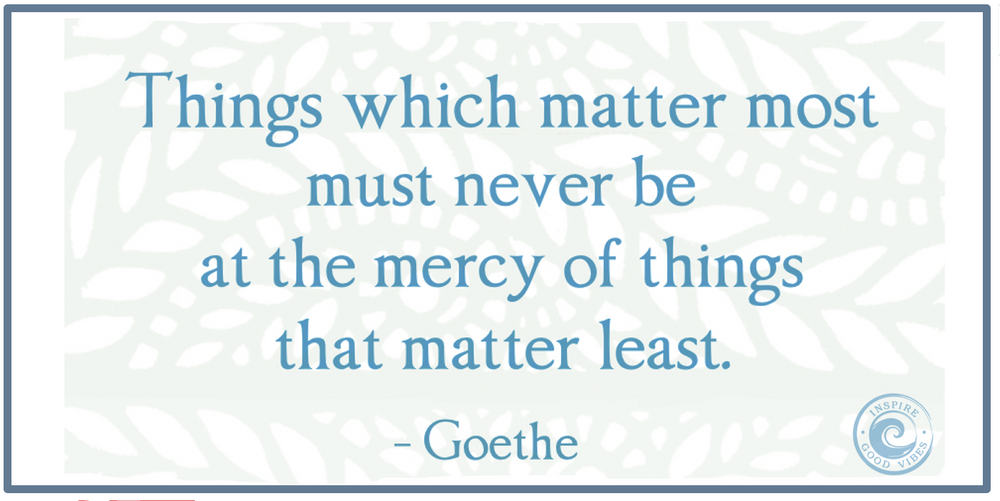Procrastination is something you can beat!

It always feels amazing to reach a goal or achieve something great, especially if you've poured your heart and soul into. Life is so much sweeter when you're succeeding at the things that actually make a difference in your life. Sometimes though, things get in your way, or maybe it's just good ol' procrastination that got to you.

A few weeks ago, while I was not working on my plans for the year, I stumbled upon a blog post on procrastination that I absolutely loved - oh, the irony. Tim Urban on WaitbutWhy.com had written three fabulous and fun posts on the subject. I decided to share some of his thoughts and delve a bit further into the topic.
In this post I tackle:
- Possible underlying reasons for procrastination.
- A simple solution.
- Geniuses who procrastinated.
What is this procrastination problem?
Tim Urban explains in his blog post Why Procrastinators Procrastinate that procrastinators have to deal with an Instant Gratification Monkey. He says that unlike the brain of a normal person, the "Rational Decision Maker", they coexist with this monkey who makes it impossible to complete tasks. Here are just a few of his entertaining sketches :




He says that the Monkey likes to spend his time in the "Dark Playground." This is a place where leisure activities happen when they're not supposed to be happening: "the fun you have in the Dark Playground isn’t actually fun because it’s completely unearned and the air is filled with guilt, anxiety, self-hatred, and dread." And if you're actually able to put a stop to the leisure activities, then it only gets worse:
"Sometimes the Rational Decision-Maker puts his foot down and refuses to let you waste time doing normal leisure things, and since the Instant Gratification Monkey sure as hell isn’t gonna let you work, you find yourself in a bizarre purgatory of weird activities where everyone loses."
Ha. Sound familiar? Has that ever happened to you? You have something very important to do and all of a sudden you...
... NEED to clean the bathroom, under your bed or (insert anything here really)?
... HAVE to re-organize your desk, closet or the silverware drawer?
... MUST finish that project that you have completely ignored for months or even years?
Whatever it is, you have to deal with it now because you've finally reached the breaking point of said issue. Argh.

What is really at the heart of your procrastination problem?
• Do you need DEADLINES ?
I love deadlines, but I tend to subscribe to the "Parkinson's Law" plan. I feel I do my best work when I’m under pressure, but even with deadlines I can run into problems. With Parkinson's Law, a task that you could easily complete in a few hours, if given more time, will actually swell in complexity and difficulty to fill the remaining time.
Parkinson’s Law : Work expands to fill the time available for its completion.


Back to Tim Urban and his fun take on all of this: For the procrastinator, there's one thing that will scare the normally unshakable Instant Gratification Monkey - "The Panic Monster."
He says, "The Panic Monster is dormant most of the time, but he suddenly wakes up when a deadline gets too close or when there’s danger of public embarrassment, a career disaster, or some other scary consequence." Tim says you need "The Panic Monster" to get anything done if you're living with the Monkey, because the Monkey is terrified of him.

What to do?
If you like deadlines and tend to work best when they're around, you can try creating a sense of urgency by setting a timer for each task. This simple tip actually helps me to focus and keeps me from going down the dreaded rabbit hole. For more on this, check out the Lifehack article on how to use Parkinson's Law to your advantage.
• Is it your lack of DISCIPLINE or GOOD HABITS?
In the book, The ONE Thing: The Surprisingly Simple Truth Behind Extraordinary Results by Gary Keller, he says it's a lie to think you need more discipline to succeed - you have all the discipline that you need and it's really only a matter of directing and managing it better.
"You can become successful with less discipline than you think, for one simple reason: success is about doing the right thing, not about doing everything right. The trick to success is to choose the right habit and bring just enough discipline to establish it. That's it."
He says it's important to find the one thing that will make the biggest difference for you and to make it a habit. Eventually, the habit becomes easier to maintain because less energy is required - "the hard stuff becomes habit, and habit makes the hard stuff easy."

• Could TIME management be an issue for you?
In Steven Covey’s famous book, The 7 Habits of Highly Effective People: Powerful Lessons in Personal Change he discusses time management using the Eisenhower Matrix, named after President Dwight Eisenhower. Eisenhower was well-known for being tremendously productive and Covey say it's his “first things first” attitude on how to spend your time.
For Eisenhower, the “first things” were always the important ones. He believed that you should spend nearly all of your time in Quadrants 1 and 2.

Covey thinks that "time management is really a misnomer - the challenge is not to manage time, but to manage ourselves." He says we should be spending the majority of our time in Quadrant 2, dealing with things that are not urgent but important - being pro-active with health, relationships, your goals, planning and preparation, etc.
Questions Steven Covey says to ask yourself:
1. What one thing could you do (you aren't doing now) that if you did on a regular basis, would make a tremendous positive difference in your personal life?
2. What one thing in your business or professional life would bring similar results?
He also says that it's almost impossible to say "no" to the popularity of Quadrant 3 or to the pleasure escape of Quadrant 4 if you don't have a bigger "yes" burning inside. Most people think it's from lack of discipline, but he thinks it's because "their priorities have not become deeply planted in their hearts and minds."
Gary Keller likewise says, "Purpose provides the ultimate glue that can help you stick to the path you've set. When what you do matches your purpose, your life just feels in rhythm, and the path you beat with your feet seems to match the sound in your head and heart."
It seems that having a bigger purpose or mission in life is where the crossroads of success, fulfillment and happiness meet.
Tim Urban from WaitbutWhy also likes the Eisenhower Matrix, but for him it looks like this:

What to do?
If time management is your thing, or not your thing, find what quadrant you tend to spend your time in the most and make the necessary changes in order to move more into Quadrant 2. The pic below shows what it's like to live in the different quadrants.
• Maybe it's your Priorities?
In The One Thing, Gary Keller asks the question:
If everyone has the same number of hours in a day, why do some people seem to get so much more done than others?
They make getting to the heart of things the heart of their approach. They go small.
He says that when you want the best chance to succeed at anything you should always go small. "Going small is ignoring all the things you could do and doing what you should do. It's recognizing that not all things matter equally and finding the things that matter most... You have only so much time and energy."

In the book it says to shoot for the moon: "The moon is reachable if you prioritize everything and put all of your energy into accomplishing the most important thing. Getting extraordinary results is all about creating a domino effect in your life... find the lead domino and whack away at it until it falls."
He says you must ask yourself this one question every day:
What's the ONE THING I can do such that by doing it everything else will be easier or unnecessary?
If you're unsure of your one thing each day then this book is a must read!
Tim Urban says on WaitbutWhy: Their are two components to achieving things - the planning and doing. "Procrastinators love planning, quite simply because planning does not involve doing...but planning must end with rigorous prioritizing and one item that emerges as the winner —the item you’re going to make your first priority."

TIP: Consider "The Pareto Principle"
"The Pareto Principle" or the "80/20 rule" states: 80 percent of your outcomes come from 20 percent of your inputs:
"A minority of causes, inputs or effort usually lead to a majority of the results, outputs or rewards." - Richard Cox, "The 80/20 Principle"

For example:
- 80% of a company's profits come from 20% of its customers
- 80% of a company's sales come from 20% of its products
- 20% of our efforts will produce 80% of our results
You're not in bad company - geniuses that Procrastinate:

2. Leonardo da Vinci - The Last Supper was only finished after his patron threatened to cut off all funds and the Mona Lisa took da Vinci twenty years to complete.
3. Frank Lloyd Wright - Wright created his most famous structure in roughly two hours but only after receiving a phone call that his designs were to be shown.
4. Herman Melville - He reportedly chained himself to his desk to finish Moby Dick.
The Bottom Line when it comes to dealing with Procrastination?
It seems to be a recurring theme: Find your ONE THING.
Go small and do your one thing before you begin obsessing about your list, working on anything else, or re-organizing the silverware drawer. (If you love your lists, deal with them only after completing your one thing for the day!)

Procrastination is not for quitters. :)
Products
View all

